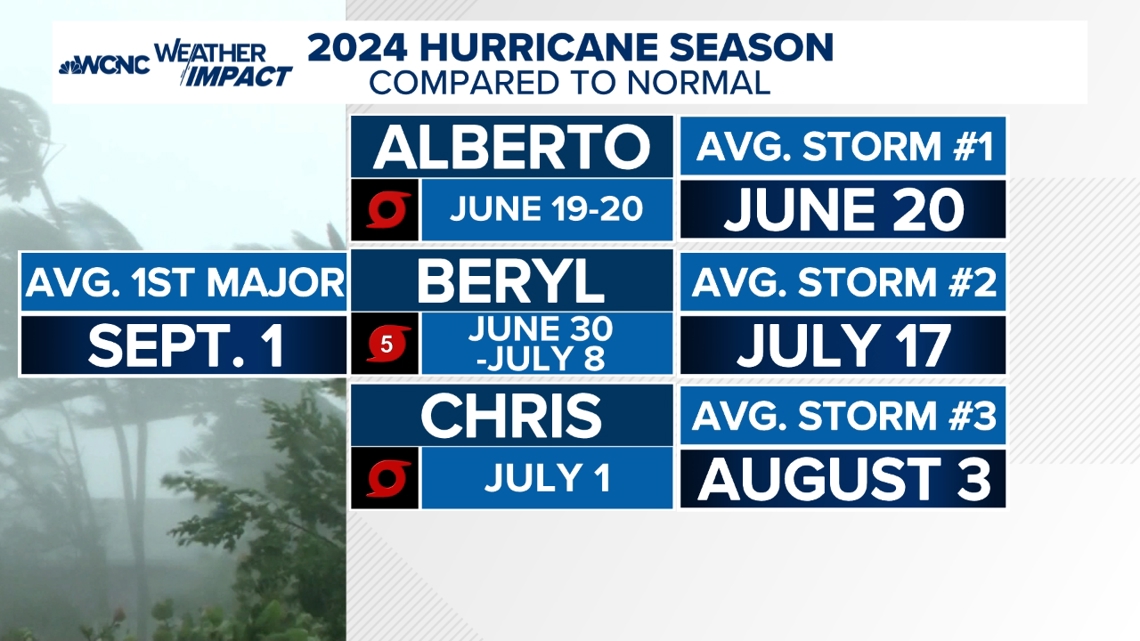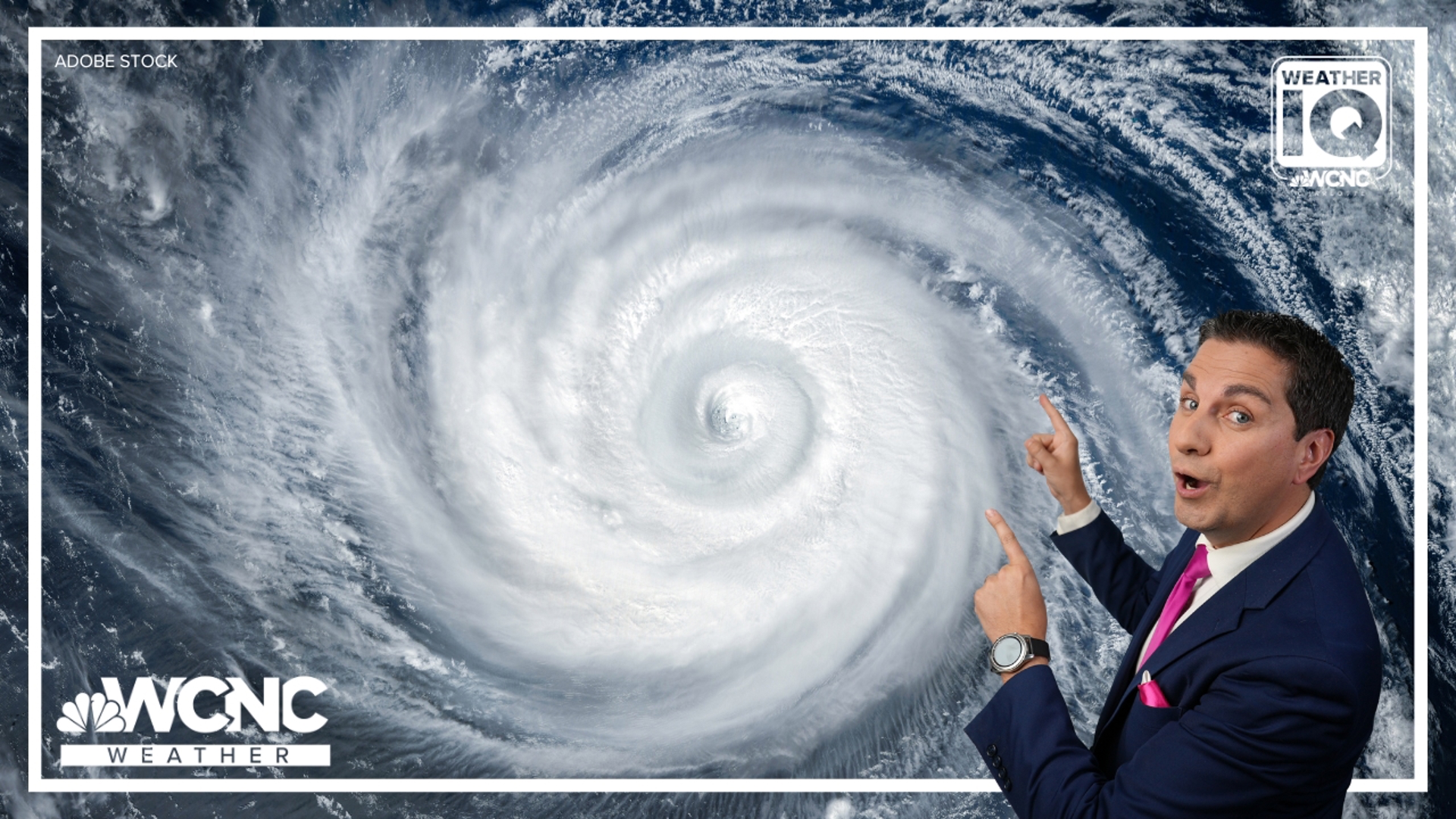CHARLOTTE, N.C. — This hurricane season started on time but has already exceeded expectations.
Before the season even had Tropical Storm Alberto, it was predicted by Colorado State University, North Carolina State University and the National Hurricane Center to be a historic season. The reason for that forecast was the transition to the La Niña phase of the ENSO cycle. This phase has a history of the most active and even some of the strongest hurricane seasons on record.
For instance, 2020 (the most active season on record) and 2005 (the strongest season on record) both phased into La Niña before the peak of the season, just like this year is predicted to do.
The 2024 season thus far
So far this season, we've had three named storms as of mid-July. Two tropical storms (Alberto and Chris) and the historic major Hurricane Beryl.
RELATED: Texas officials say restoring electricity will take days after Beryl knocked out power to millions
Hurricane Beryl was the earliest category 4 and category 5 hurricane recorded in Atlantic Hurricane Season history. This monster was also tied for the 25th strongest hurricane on record. Our first major hurricane typically doesn't form until Sept. 1, meaning Beryl was about two months ahead of schedule.
Tropical Storm Chris was nothing noteworthy, but it still was early for our third named storm of the season by a long shot.


Why the current lull?
Four major things weaken a hurricane:
- Wind shear
- Cooler waters (below 80°F)
- Landfall
- Dry air
And what is drier than Saharan dust? This dust is currently spread across the Atlantic Ocean and the Gulf of Mexico and is forecast to remain there through the mid-July. This will halt tropical development for now, but after it breaks, we will likely see a drastic increase in activity just in time for August and the peak months of the season.
Colorado State University's upgrade
The season prediction hasn't changed much, but Colorado State University did add two more named storms and one additional hurricane and major hurricane to the list. This is forecast to be a historic season and this update backs up that sentiment.
Contact Chris Mulcahy at cmulcahy@wcnc.com and follow him on Facebook, X, Instagram and TikTok.
WCNC Charlotte’s Weather IQ YouTube channel gives detailed explainers from the WCNC Weather Impact Team meteorologists to help you learn and understand weather, climate and science. Watch previous stories where you can raise your Weather IQ in the YouTube playlist below and subscribe to get updated when new videos are uploaded.

